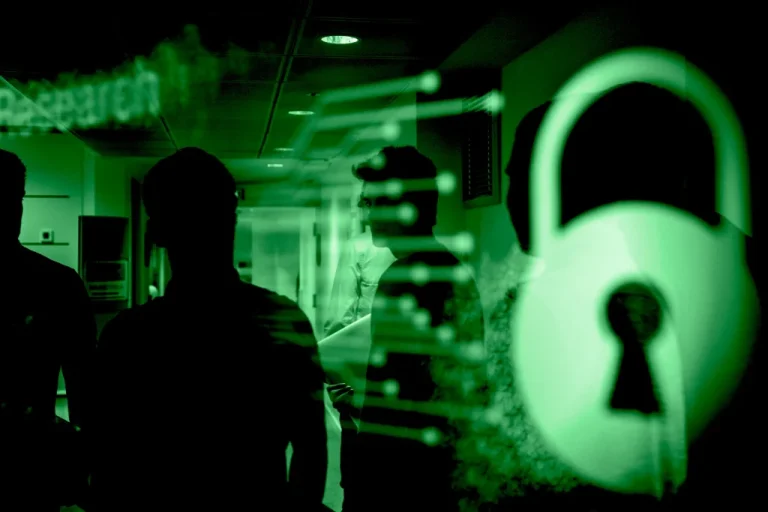Unmasking the Truth: How Deepfakes Fuel Anti-Ukraine Disinformation Campaigns
Deepfakes Used for Anti-Ukraine Disinformation
Recent investigations have revealed that influence campaigns linked to Russia and Belarus are employing deepfake technology to disseminate anti-Ukraine disinformation. A study previously published suggested that individuals are increasingly unable to differentiate between authentic human images and AI-generated “deepfake” faces. Given this psychological susceptibility, it was anticipated that Russia would harness deepfake technology to escalate its extensive disinformation efforts.
Over the weekend, both Facebook and Twitter took action against two covert influence operations promoting anti-Ukraine narratives. One was associated with Russia, while the other had ties to Belarus. Similar to previous disinformation campaigns seen during events like the COVID-19 pandemic, this Russian initiative included platforms designed to sway public opinion against Ukraine. Notably, these operations were linked to the websites News Front and South Front, which the U.S. government has identified as part of Russian disinformation tactics.
According to Facebook, this disinformation campaign utilized AI-generated personas to create an illusion of credibility among columnists. For instance, the featured “columnist” and the “editor-in-chief” of one of the propaganda websites displayed telltale signs of AI creation, such as mismatched earrings and atypically rendered ears.
The campaign aimed to project a narrative that Russia’s military maneuvers were succeeding while portraying Ukraine’s response as faltering. Current assessments estimate that Russia has incurred approximately 5,300 military fatalities along with significant losses of armored vehicles and aircraft amid its offensive in Ukraine. In stark contrast, state-controlled media has downplayed these casualties, often reporting far fewer losses.
On a noteworthy occasion, the state-run RIA-Novosti inadvertently published an article titled “The Arrival of Russia in a New World,” a pre-prepared piece that seemed to expect an immediate Russian victory. This article praised President Putin’s regime while claiming that Russia was on the verge of establishing a new global order to rectify the supposed “catastrophe” following the Soviet Union’s dissolution.
However, as the realities of slow military progress and increasing casualties set in, feelings of frustration are growing within Russia. The military has engaged in actions that may constitute war crimes, such as targeting civilian populations and employing indiscriminate weapons. Furthermore, President Putin has alluded to the potential offensive use of nuclear arms, indicating a disturbing escalation.
Public sentiment among many Russian citizens is turning against their government’s actions in Ukraine, driven by personal connections and cultural ties to the region. As a response to this growing dissent, Russian authorities appear to be intensifying their propaganda efforts.
In the face of ongoing conflict, Western governments and technology firms have stepped up efforts to curtail Russian state propaganda. Google has blocked access to YouTube channels affiliated with RT and Sputnik throughout Europe. The British regulatory agency Ofcom is conducting 15 investigations into RT due to increased concerns about compliance with broadcasting standards. Additionally, Facebook has restricted RT and Sputnik’s access across the EU following multiple requests from European governments, while Twitter has taken steps to label tweets from Russian state media.
Meanwhile, the hacker collective Anonymous has reportedly executed over 1,500 cyberattacks targeting Russian government sites, transport systems, financial institutions, and state media, aiming to expose the truth about the invasion and inform Russian citizens.
Russia’s media regulator, Roskomnadzor, has imposed restrictions on access to Facebook and Twitter for Russian users, reflecting the ongoing tension in the region.
In related news, Ukraine is leveraging Starlink technology to sustain global connectivity amidst the conflict.
For those interested in artificial intelligence and big data, the AI & Big Data Expo series will feature events in Santa Clara on May 11-12, 2022, Amsterdam on September 20-21, 2022, and London on December 1-2, 2022. These gatherings will showcase insights from industry leaders and discussions on the future of enterprise technology.
Education, Legislation & Government
June 11, 2025
Teachers in England have received approval to integrate AI technologies into their classrooms. This development marks a significant shift towards modernizing education and enhancing teaching methods.
Artificial Intelligence
June 11, 2025
The role of AI continues to expand within the cryptocurrency sector as it influences various aspects of trading and investment strategies.
AGI and Society
June 11, 2025
Sam Altman from OpenAI has announced that we have entered a new era characterized by superintelligence, representing profound implications for technology and society.
Subscribe to receive all our premium content and the latest tech news directly to your inbox.
Countries and Territories:
- North Macedonia
- Northern Mariana Islands
- Norway
- Oman
- Pakistan
- Palau
- Palestine, State of
- Panama
- Papua New Guinea
- Paraguay
- Peru
- Philippines
- Pitcairn
- Poland
- Portugal
- Puerto Rico
- Qatar
- Romania
- Russian Federation
- Rwanda
- Réunion
- Saint Barthélemy
- Saint Helena, Ascension and Tristan da Cunha
- Saint Kitts and Nevis
- Saint Lucia
- Saint Martin
- Saint Pierre and Miquelon
- Saint Vincent and the Grenadines
- Samoa
- San Marino
- Sao Tome and Principe
- Saudi Arabia
- Senegal
- Serbia
- Seychelles
- Sierra Leone
- Singapore
- Sint Maarten
- Slovakia
- Slovenia
- Solomon Islands
- Somalia
- South Africa
- South Georgia and the South Sandwich Islands
- South Sudan
- Spain
- Sri Lanka
- Sudan
- Suriname
- Svalbard and Jan Mayen
- Sweden
- Switzerland
- Syria Arab Republic
- Taiwan
- Tajikistan
- Tanzania, the United Republic of
- Thailand
- Timor-Leste
- Togo
- Tokelau
- Tonga
- Trinidad and Tobago
- Tunisia
- Turkmenistan
- Turks and Caicos Islands
- Tuvalu
- Türkiye
- US Minor Outlying Islands
- Uganda
- Ukraine
- United Arab Emirates
- United Kingdom
- United States
- Uruguay
- Uzbekistan
- Vanuatu
- Venezuela
- Viet Nam
- Virgin Islands, British
- Virgin Islands, U.S.
- Wallis and Futuna
- Western Sahara
- Yemen
- Zambia
- Zimbabwe
- Åland Islands







